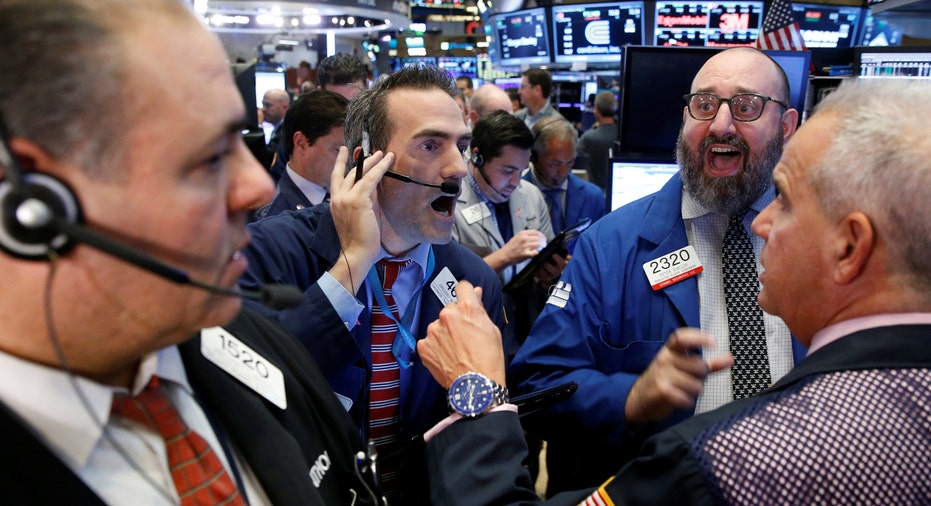Stocks Recover Some Losses After Health-Care Vote Scrapped

U.S. stocks whipped between sharp gains and losses Friday after House Speaker Paul Ryan, in a last-minute move, scrapped a planned vote on the American Health Care Act, a bill aimed at replacing former President Barack Obama’s hallmark health-care law.
In a press conference just after the close of trade in New York, Ryan said it was during a 3:00 p.m. ET meeting at the White House that he told the president he didn’t appear to have the votes necessary to pass the legislation. The president responded by telling Ryan to scrap the vote completely. The decision came after the House punted the planned Thursday vote to Friday after failing to garner the support they’d hoped.
“I’m not going to sugarcoat it: This is a disappointing day. Doing big things is hard. All of us, myself included, need time to reflect how we got to this moment, and what we could do better,†Ryan said.
In an appearance from the Oval Office, Trump thanked Ryan who he said worked “very, very hard†and “was a team player.†The president called the experience an “interesting one†and said he learned about “arcane rules in both the Senate and the House,†which will be valuable in forging ahead with the next item on the White House’s legislative agenda: Tax reform.
Stocks reversed earlier declines by the closing bell on Wall Street Friday. The Dow Jones Industrial Average rallied back from a more than 120-point deficit with an hour left in the session, closing down 59 points or 0.29% to 20596. The broader S&P 500 ended with a slight 2-point loss, or 0.08% to 2343, while the tech-heavy Nasdaq Composite, which had been in solidly positive territory for much of the day, rose 11 points, or 0.19% to 5828.
Though mostly flat on the session, the major averages logged their worst week since before the November election.
Hospital stocks rallied, which helped lift the broader health care sector by 0.5% as utilities, traditionally seen as a safety play, also got a bid higher alongside the consumer discretionary and telecommunications sectors. Infrastructure stocks, including names like U.S. Concrete (NYSE:USCR) and United States Steel Corporation (NYSE:X), declined on fears more ambitious policy goals like the construction of a wall along the southern border of the U.S. wouldn’t come to fruition.
Amid heightened uncertainty, the VIX, Wall Street’s so-called fear gauge, spiked to 14, its highest level since January as it rose for the sixth-straight session – the most since late last year. By the close of trade, however, the gauge moved back down to 12.9 as investors digested the news Congress would not vote on the health-care bill.
The choppy market action alongside the earlier bid higher in the VIX corresponded to investor anxiety over whether the president’s difficulty getting the health care bill – his first legislative priority – across the finish line would mean that other campaign promises of lower taxes, more fiscal spending and less regulation would move forward as expected.
While some fear it means the Trump agenda is on the rocks, not everyone believes the scrapped health-care bill spells doom.
“[We] believe tax reform is still very likely, but the timing and magnitude could be different as we are now witnessing the difficulties in passing health care legislation,†said Allianz investment strategist Charlie Ripley. “Ultimately, because of procedural process, the runway to pass legislation appears longer to us than other investors may view.â€
Indeed, while Main Street America was focused on Trump’s promise to roll back the Affordable Care Act, Wall Street remains focused on other initiatives like tax reform.
“Health care is something that’s very important to the people of America, but in terms of financial markets, it’s less of a concern,†Bank of America equity strategist Dan Suzuki.explained. “Moving past the health care bill puts all eyes on what was the No. 1 priority for Trump which is tax reform. As that becomes the focus, you’re likely to see a big push by the administration and that could create a lot of optimism [on the Street].â€